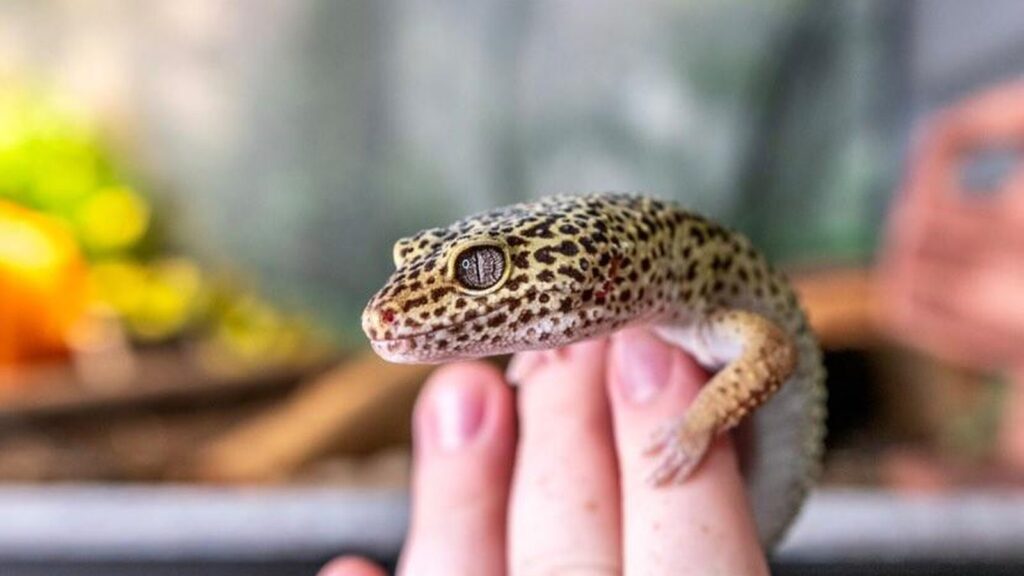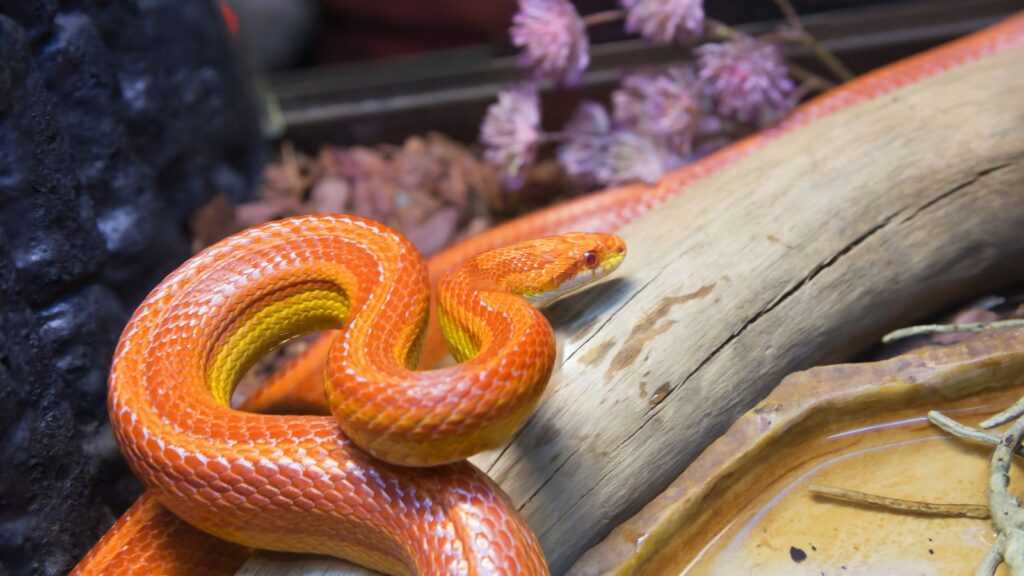Reptiles > Cats and Dogs?
Cats and dogs may be the most popular pets around the country, but reptile ownership has been on the rise for years now.
According to an APPA survey, from 2018 to 2022, reptile pet ownership increased from 18% to 29% among Gen Zers in the United States.
And now, there are about 6 million US households with a reptile that calls it home.
Should you get a reptile over a traditional pet like a cat or dog? What are the pros and cons of having a pet reptile?
We’ll cover this in our brief post.
6 Potential Pros of Reptile Pets

1) Hypoallergenic
According to the Journal of Feline Medicine, about 10-20% of human adults are allergic to cats, alone. This makes it hard to get a pet of your own, and also makes it difficult to see friends and family with pets.
Those who deal with these pesky allergies will benefit greatly from reptile companionship. People’s allergies act up around cats and dogs mainly because of the proteins in their saliva, which eventually get on their fur, and then get everywhere in your home.
Due to the makeup of reptile’s saliva and their dry scaly skin, they give off significantly fewer allergenic proteins than our furry friends.
2) Space Requirements
Reptiles require less space than other popular pets and will typically need some type of reptile enclosure.
Keep in mind, the size of the enclosure is very important. For example, a green anole is a small reptile that can live in a 20-gallon tank.
A ball python, on the other hand, needs a lot of horizontal and vertical room to fully stretch out and climb surfaces, requiring a much larger enclosure.
Unsure what type of enclosure your reptile needs?
3) Low Maintenance
Reptiles are often easier to care for than cats or dogs. However, you will spend a considerable amount of time setting up their enclosure and maintaining it throughout their life.
But once your reptile’s home is set up, they won’t need to be walked or groomed, they don’t eat very often, and the food they do eat is very affordable. So if you’re worried about too much upkeep, reptiles are the way to go.
4) Longevity
Several reptile species easily outlive many domesticated pets, which can be appealing to some pet owners.
Certain lizards and boas, for example, can live 30 years or longer under proper care!
This makes for an awesome experience for younger pet lovers who get to grow into adulthood with their reptilian friends.
5) Quietness
Reptiles are generally quieter than traditional pets, which can be beneficial for people in living situations like in an apartment or with roommates.
6) Independence
Reptiles are typically independent and don’t require frequent care.
They often enjoy solitude, exploring their habitat, sleeping in their comfiest spots, and relaxing under the warm basking light. That being said, you still need to offer them enrichment opportunities.
Simple items like shredded paper, elevated surfaces, and interactive toys can spark curiosity, provide entertainment, and encourage physical activity.
Also, depending on your pet’s comfort level, you can bring them outside of their enclosure to interact with you. This gives reptiles plenty of stimulation and they may start to associate you with a companion, instead of someone that just brings them food.
6 Potential Cons of Reptile Pets

While there are many benefits to owning a reptile, there are potential drawbacks to consider.
1) Specialized Care
Reptiles have very specific needs regarding habitat, diet, and temperature regulation. Reptiles often require specialized equipment like a fully decorated reptile enclosure, heat and humidity equipment, and a personal commitment to maintaining the proper conditions.
2) Limited Interaction
Unlike our domesticated furry friends, most reptiles are antisocial and don’t crave human interaction. If you’re looking for a pet to cuddle or play fetch with, a reptile is not the best choice.
But if you’re looking for a pet to care for but are still happy with little interaction, this independence could be an advantageous feature of your reptile.
3) Health Risks
Some reptiles can carry diseases such as salmonella, which poses a risk to humans, especially young children or those with weakened immune systems. To decrease the risk of infection, proper hygiene is essential.
After handling your reptile or its enclosure, always wash your hands thoroughly. Salmonella is often transferred through accidental hand-to-mouth contact after holding the animal or cleaning their droppings.
4) Less Emotional Connection
While many reptile owners form strong bonds with their pets, reptiles may not show affection equally. This doesn’t mean they dislike their owners or don’t want to be around them; this is just the nature of reptiles.
If you’re seeking a pet that will visibly reciprocate your love, a reptile may not meet your expectations.
5) Long Lifespan
While this can be seen as a positive, a reptile’s long lifespan also means a long-term commitment.
Simply put, you must ensure you’re ready to care for a pet that could live with you for several decades.
6) Veterinary Care and Availability
Not all veterinarians are trained or equipped to treat reptiles. Depending on your location, finding appropriate medical care when needed may be more difficult.
Reach out to your local vets and see if they offer the services your reptile would need.
Conclusion
Whether you prefer cats and dogs, gerbils and ginny pigs, or lizards and snakes, pets are an amazing addition to anyone’s family.
There are pros and cons for any animal you choose, like type of care, emotional connection, physical interaction, availability of professional care, and more.
And depending on your expectations of a pet, these pros and cons are up to your interpretation.
That’s why you must educate yourself and prepare for the “good” and “bad” side of owning reptiles. With a well-rounded approach, you’ll become the best pet parent regardless of the animal you choose.
